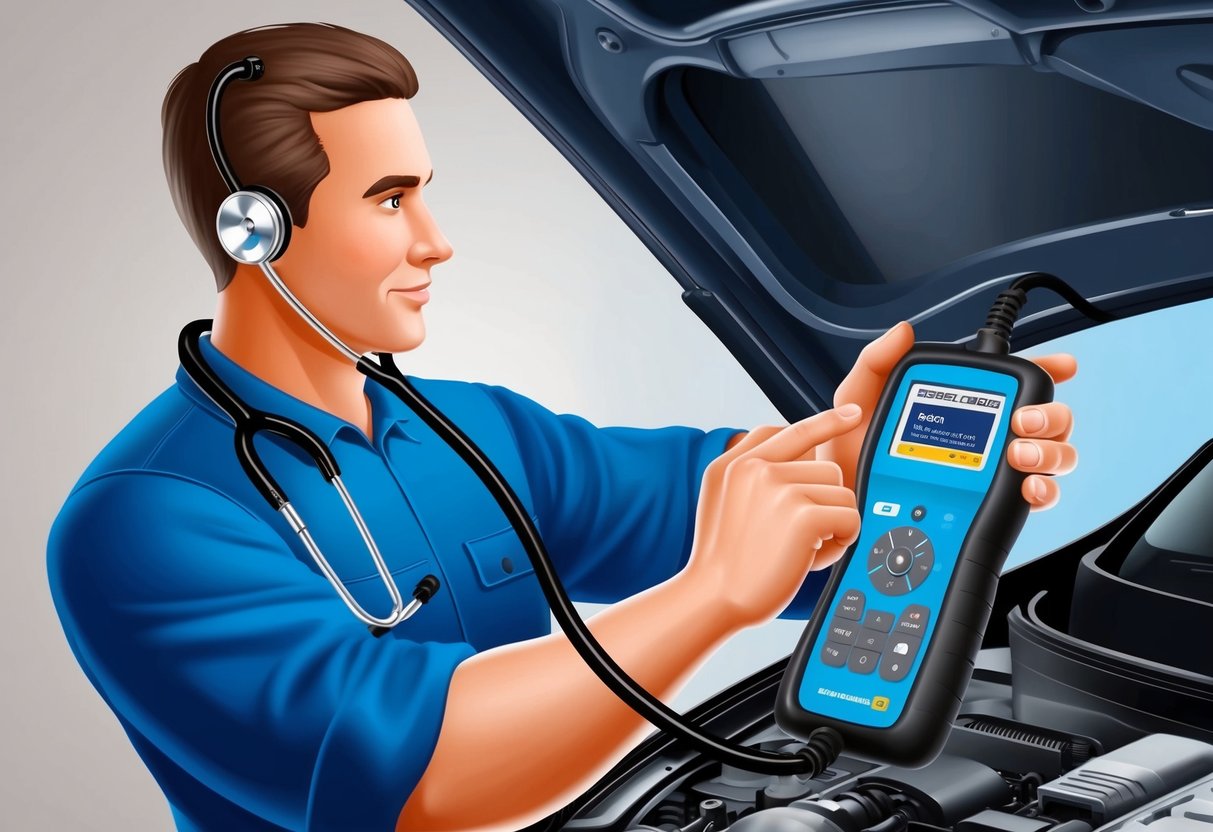
Unusual car noises can be frustrating and sometimes alarming. Recognizing the specific sounds is the first step in diagnosing and fixing potential issues.
Squealing brakes, rattling under the hood, or grinding from the wheels each point to different possible faults. Knowing what these noises indicate is crucial for any car owner.
When a vehicle starts making strange sounds, it’s not just an annoyance—it can signal problems with the engine, exhaust system, suspension, or brakes. A chugging exhaust could reveal a blockage in the system, while a rattling noise might mean wheel alignment issues.
Learning how to diagnose strange noises from a car empowers drivers to address maintenance issues early and keep their vehicle running smoothly. Useful information can be found in resources like this guide on common car noise meanings.
Understanding the Importance of Unusual Car Sounds
Strange noises from a vehicle can be early warning signals that something is wrong. By recognizing and interpreting these car sounds, drivers can avoid costlier repairs and ensure safer driving conditions.
Identifying Strange Noises
Drivers often notice unfamiliar noises such as hissing, grinding, squealing, or rattling while operating their vehicles. These sounds can stem from several sources, including the engine, brakes, transmission, or exhaust system.
Pinpointing the exact location and type of noise is key to tracing its origin.
A quick checklist for identification:
- When does the noise occur? (e.g., during acceleration, braking, or idling)
- Where does the sound come from? (front, rear, under the hood, etc.)
- What does it sound like? (clicking, humming, knocking, etc.)
Using these observations helps narrow down possible causes before seeking professional assistance. Many common car noises have recognizable patterns that can help with self-diagnosis.
Why Prompt Diagnosis Matters
Addressing strange noises promptly helps prevent minor issues from escalating into more serious mechanical failures. For example, ignoring a squealing brake noise could lead to brake system damage, while allowing a grinding transmission noise to persist might cause costly repairs.
Left unchecked, abnormal car sounds often signal misaligned, worn-out, or broken parts that compromise safety. Quick action reduces the risk of unexpected breakdowns and keeps vehicle performance optimal.
Ignoring warnings from strange car noises could also result in unsafe driving situations or accidents. Experts on vehicle noise diagnosis highlight the importance of timely attention.
Common Types of Car Noises and Their Causes
Mechanical noises such as grinding, rattling, hissing, and squealing often signal specific issues within the vehicle. Recognizing these sounds, along with their patterns and conditions, can help prevent more extensive damage and high repair costs.
Grinding and Rattling Noises
Grinding noises from a car are often linked to problems in the brake system such as worn brake pads, damaged rotors, or lack of lubrication. Metal-on-metal grinding while braking usually points to worn pads that urgently need replacement to avoid rotor damage.
If the grinding sound persists even when not braking, it might indicate a transmission or wheel bearing problem. Rattling noises typically come from loose or broken components.
A rattling sound under the vehicle often means that the exhaust system, heat shields, or suspension parts are unsecured or worn out. Sometimes, debris caught in the wheels or undercarriage can also lead to rattling.
Chronic rattling should be inspected because loose components can eventually fail and cause further issues. For a detailed explanation of these problems, see this guide on common car noise meanings.
Hissing and Whistling Sounds
A hissing sound under the hood can often suggest a fluid leak or a problem with vacuum lines. Frequently, hissing after shutting off the engine means a coolant or oil is hitting a hot part like the exhaust manifold.
A steady hissing during operation sometimes points to a vacuum leak, which can impact engine performance and fuel efficiency. A whistling noise usually means air is moving through a gap where it shouldn’t.
This could be due to a loose hose, a gap in the window or door seal, or a leak in the intake system. Drivers should check for split hoses or deteriorated gaskets if a whistling sound is persistent.
Read more about these sounds in this overview of unwanted car sounds.
Knocking and Squealing
Knocking sounds from the engine often mean problems with ignition timing, poor quality fuel, or worn engine parts like bearings. Persistent engine knock, sometimes called “pinging,” can cause long-term damage to pistons and valves if ignored.
Engine knocks during acceleration or under load need a diagnostic check as soon as possible. A squealing noise often relates to slipping drive belts, particularly the serpentine belt or fan belt.
This high-pitched squeal usually becomes more noticeable when starting the engine or turning the steering wheel. Belts that are old, glazed, or loose cause this issue.
Squealing may also emerge from worn brake components or dry suspension bushings. For more information on these noises and their sources, visit this page covering common car noises.